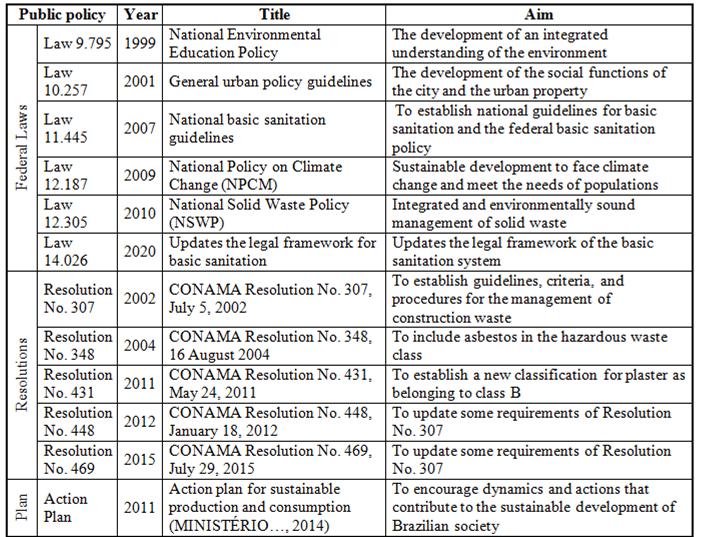Abstract
ircular economy (CE) has been receiving increasing attention worldwide to increase the efficiency of the use of resources and minimize the generation of waste, aiming at a better balance and harmony between economy, environment, and society. It is an incipient concept, and its implementation is mainly associated with the support of public policies. Thus, the environmental and social impacts of the construction sector require alternatives to optimize the use of materials, encourage the recycling of construction waste (CW) and the correct disposal of non-reusable waste. This study aimed to analyze the Brazilian public policies that support the adoption of CE in the construction sector. It was possible to identify twelve public policies and their respective instruments, categorized into five guiding axes and according to the 9Rs framework of circular strategies. This study revealed that the adoption of CE is focused on reducing the CW, guided by normative instruments such as the National Policy for Solid Waste (NPSW), through the principles of shared responsibility and reverse logistics. The study contributes to the theoretical literature on public policies in support of CE and helps policymakers to create a circular policy plan to support the decision-making process in the construction industry and encourage the adoption of sustainable strategies.
Keywords:
Circular economy; Construction waste; NPSW; Sustainable management

 Thumbnail
Thumbnail
 Thumbnail
Thumbnail
 Thumbnail
Thumbnail
 Thumbnail
Thumbnail
 Thumbnail
Thumbnail
 Thumbnail
Thumbnail
 Thumbnail
Thumbnail
 Source: adapted from
Source: adapted from  Source: annually ABRELPE reports (
Source: annually ABRELPE reports ( Source: adapted from
Source: adapted from 


